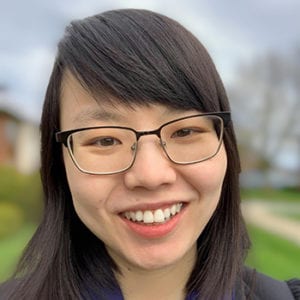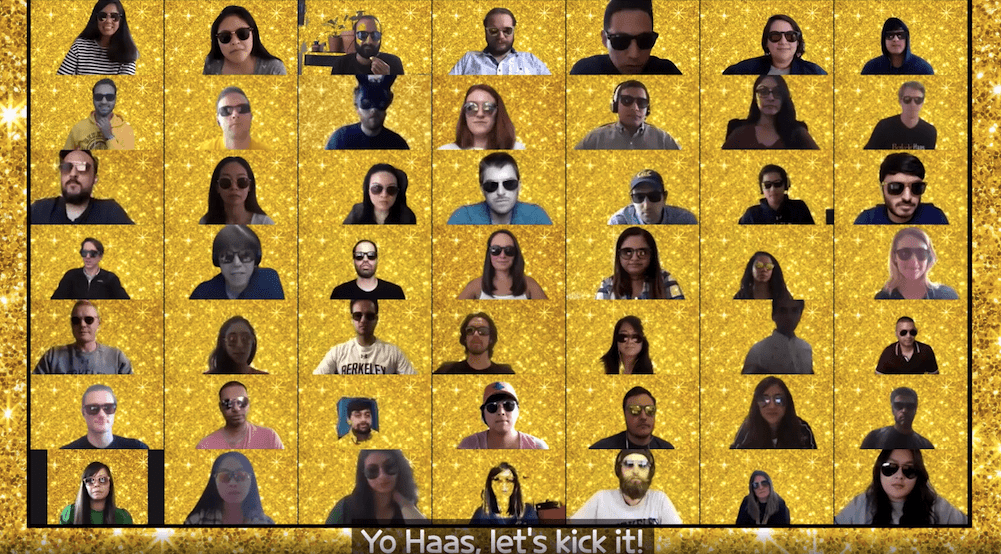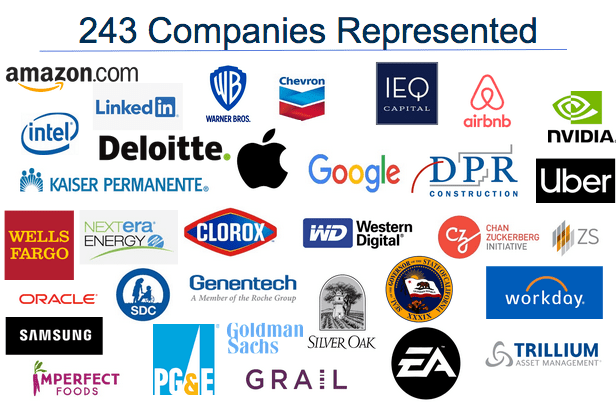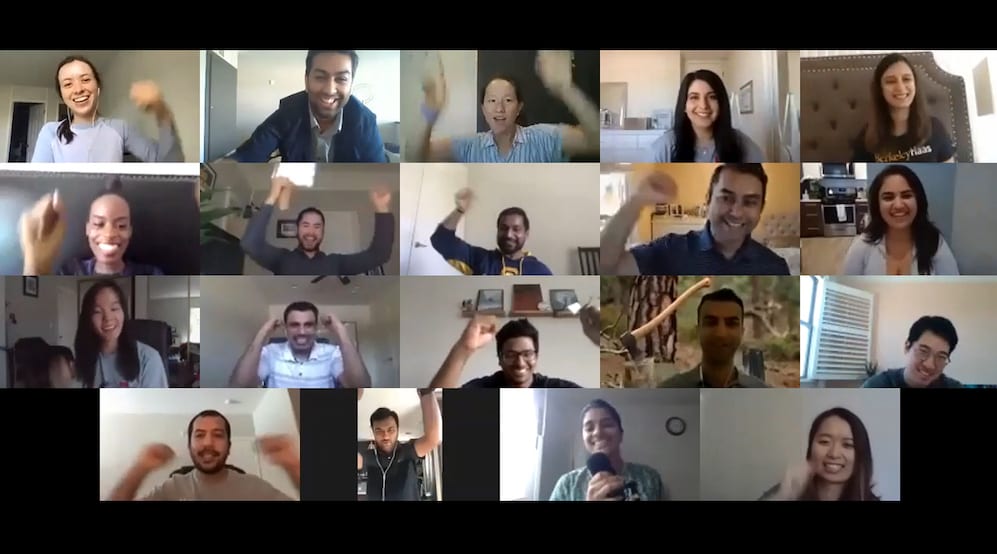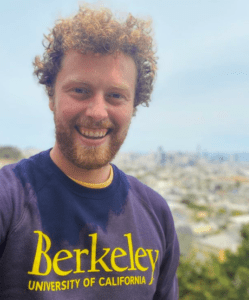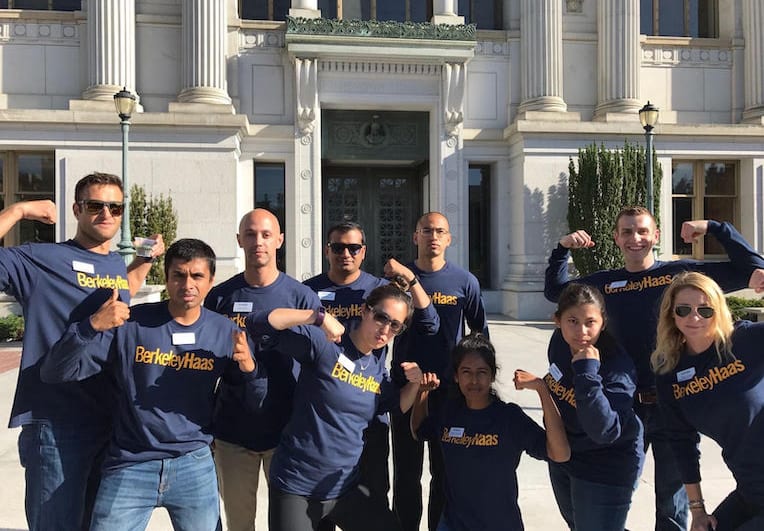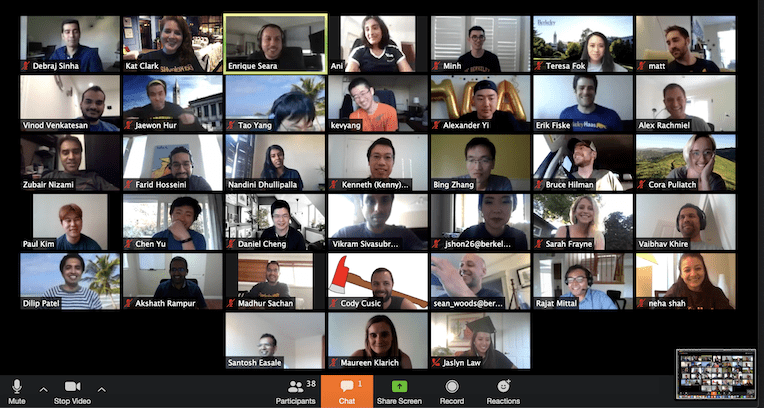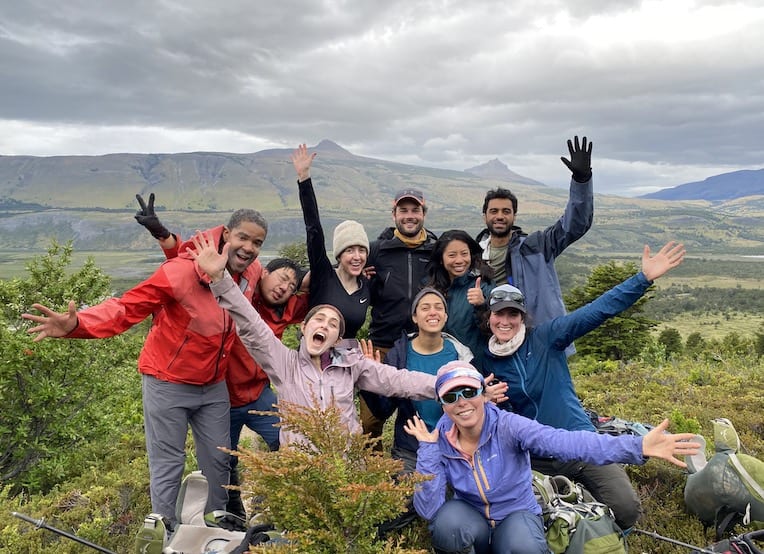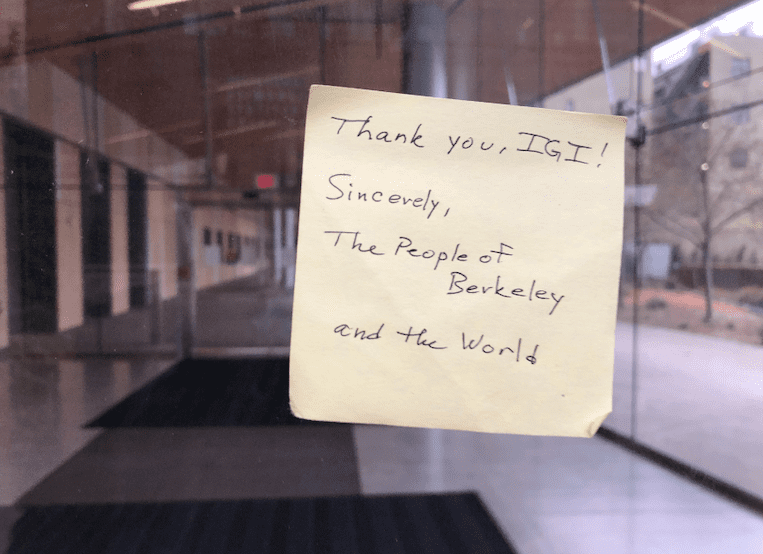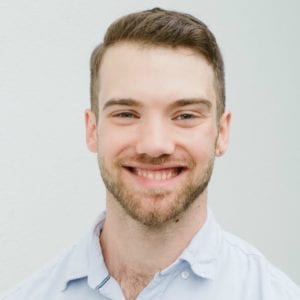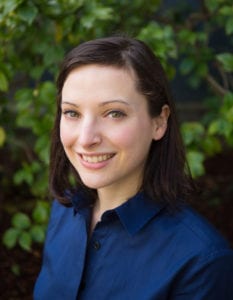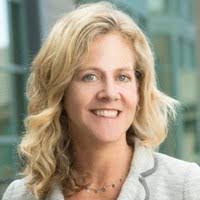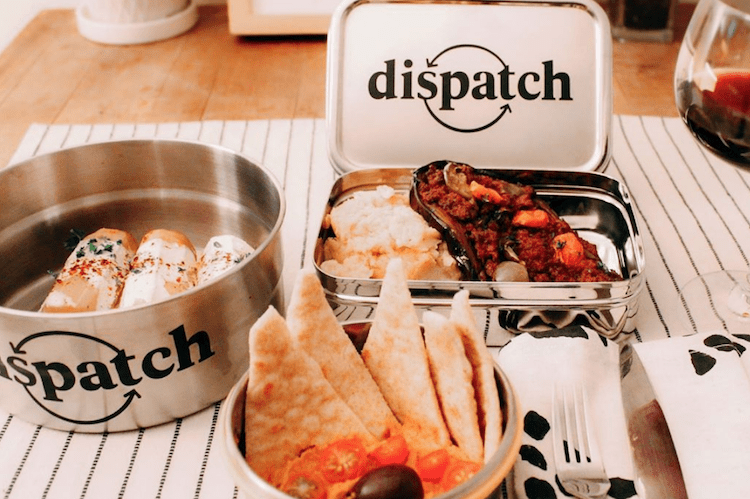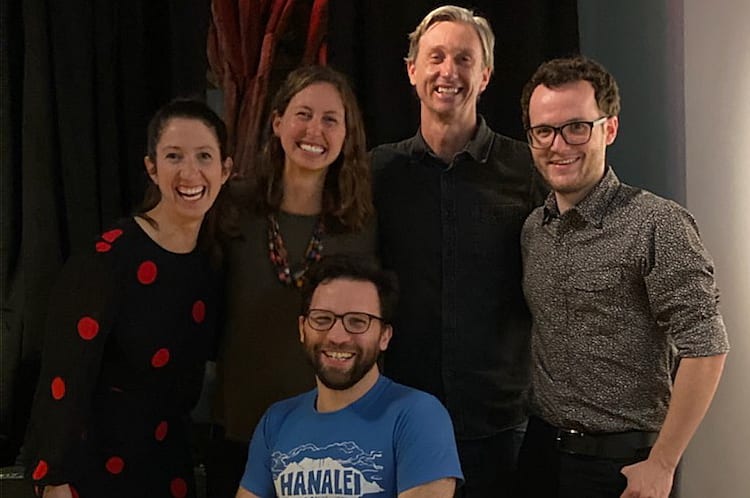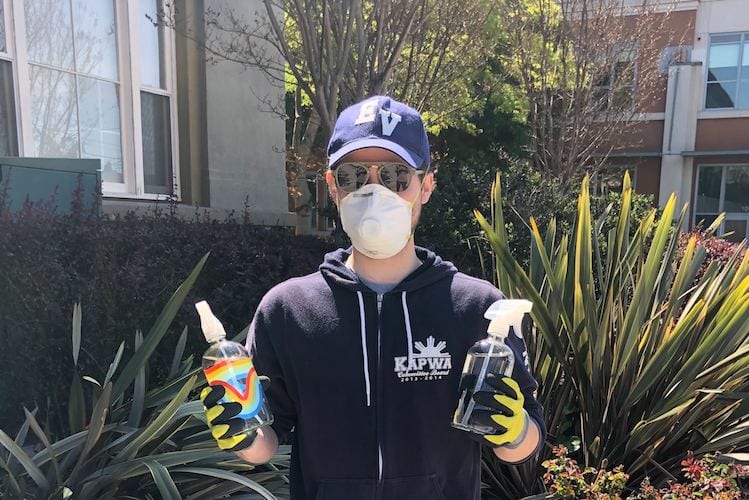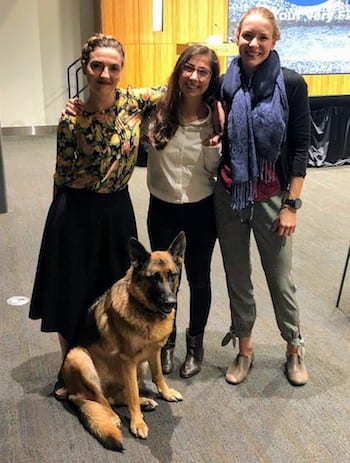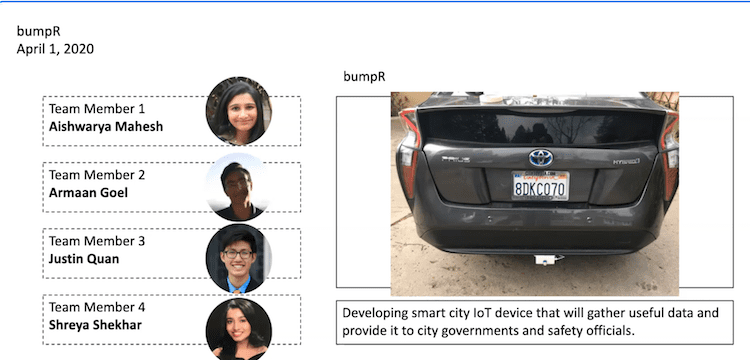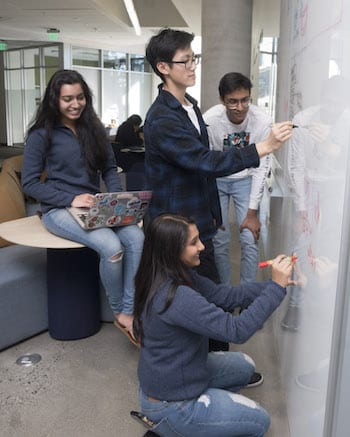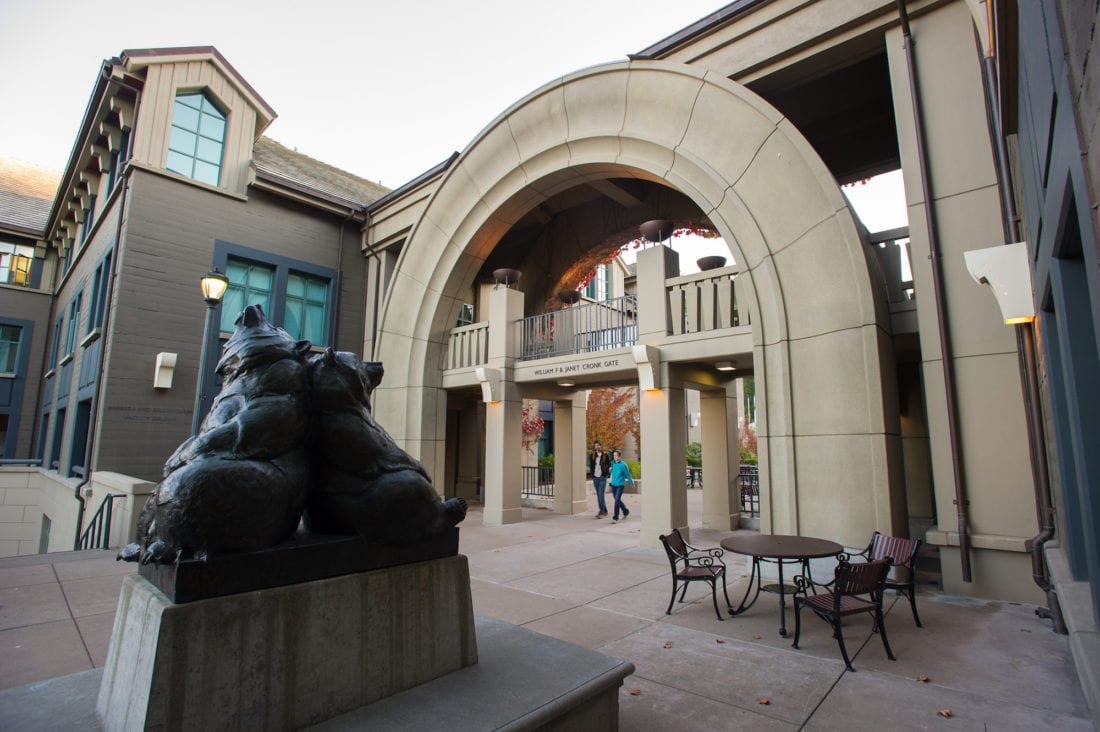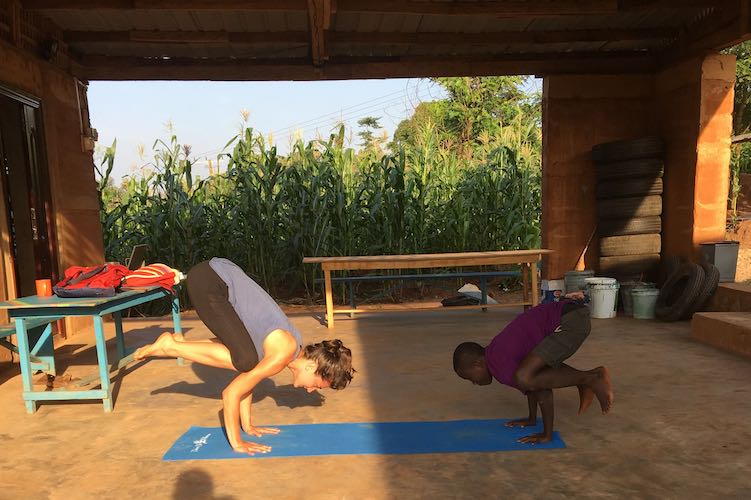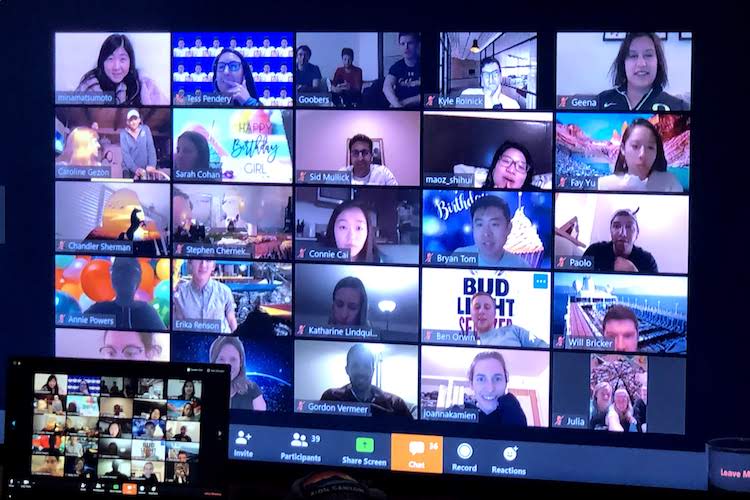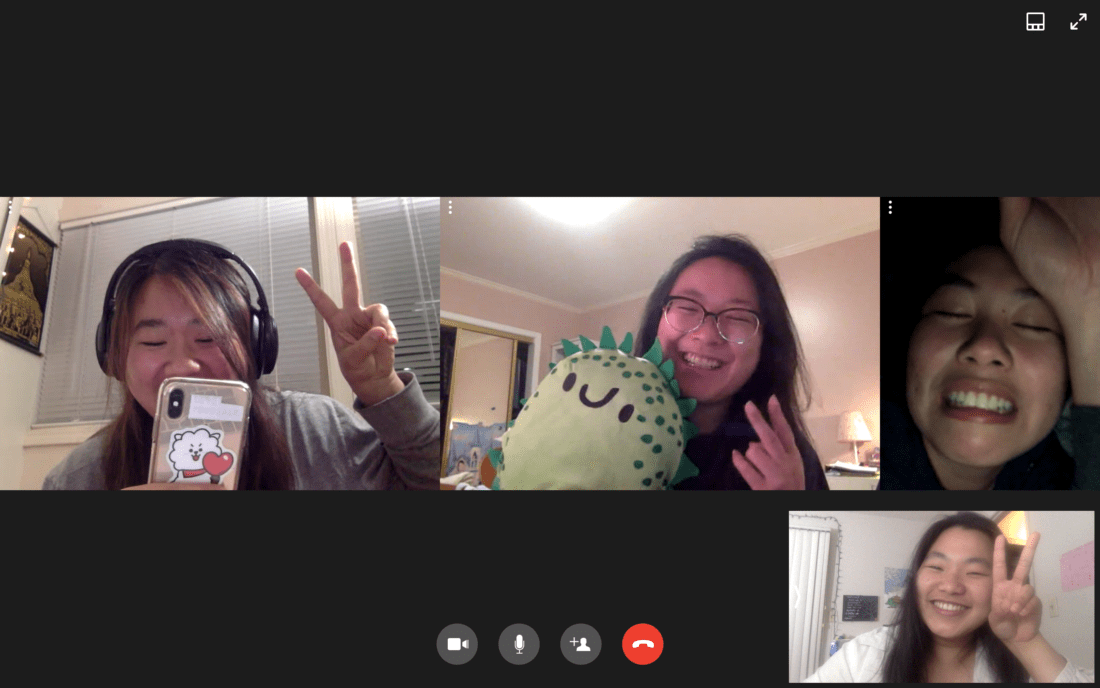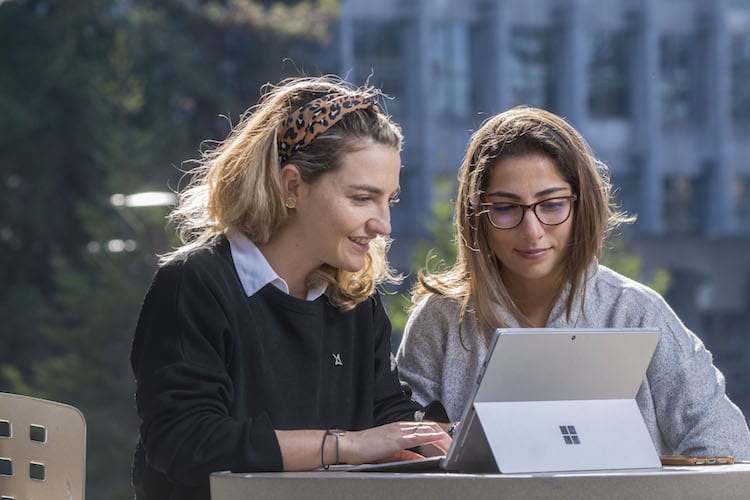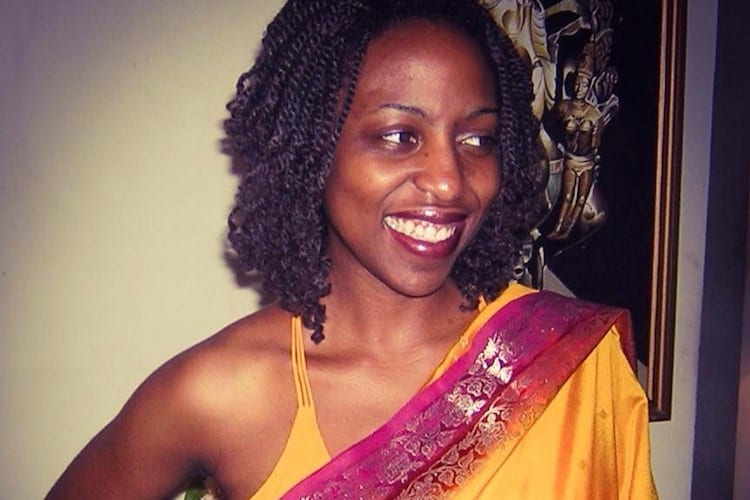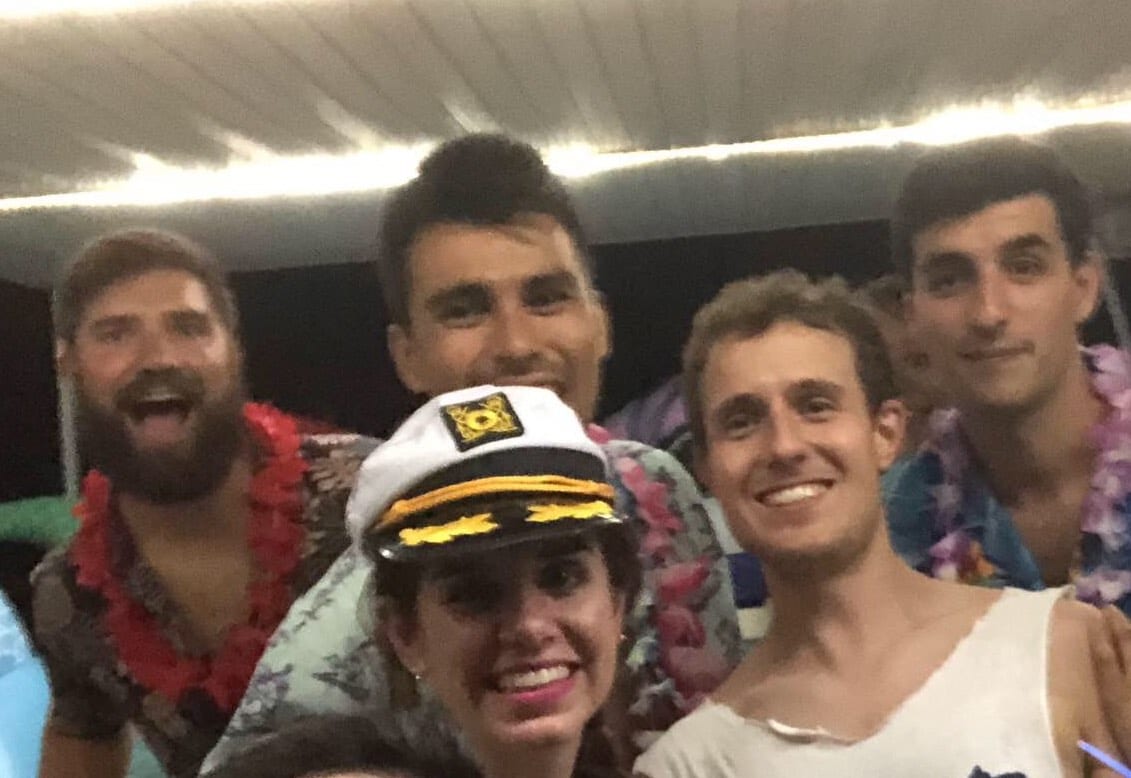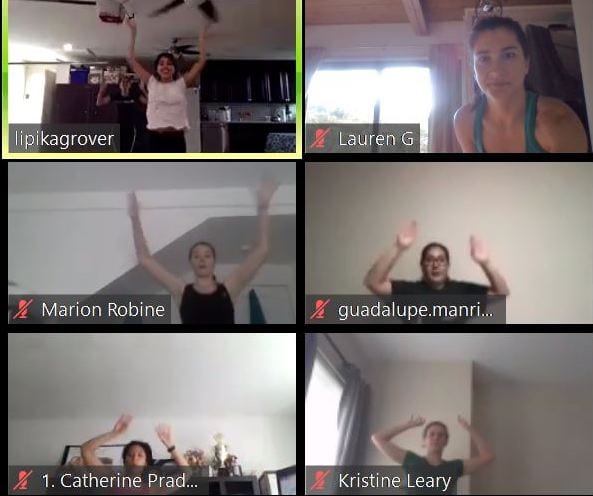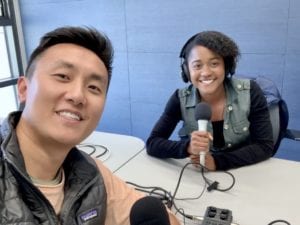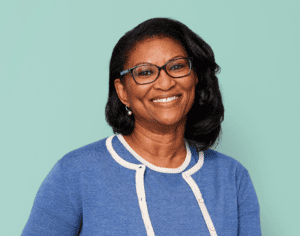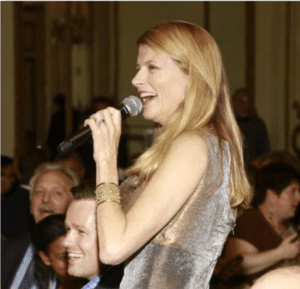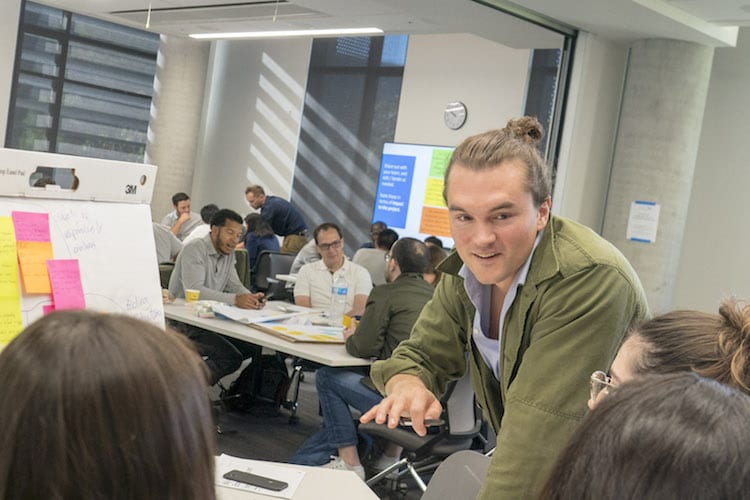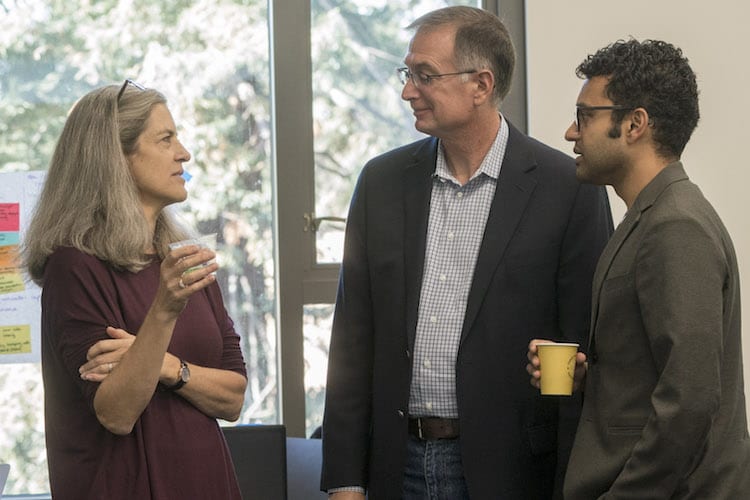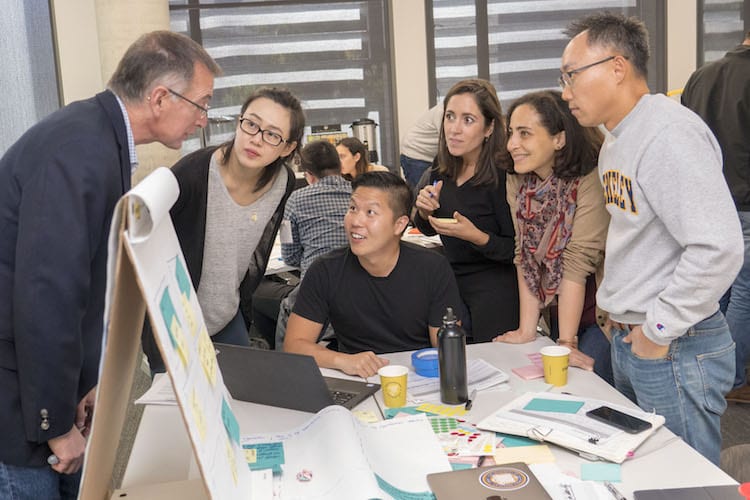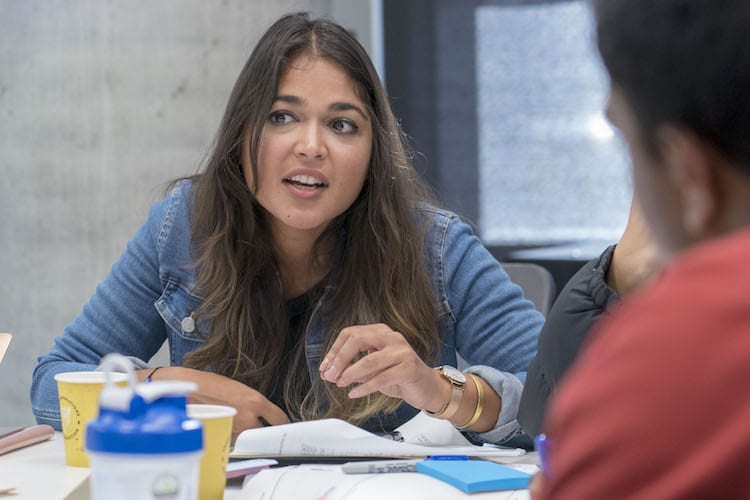The startup roundup series spotlights students and recent alumni who are starting a new business or enterprise.
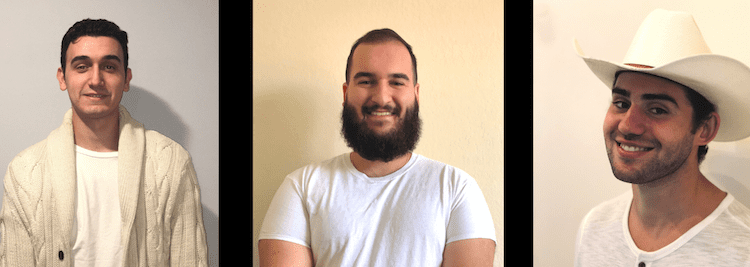
Founders: John Melizanis, BS 20, Joseph Lorenzo, a University of Tampa graduate, and Jake Lourenco, BA 20 (political science)
What does Newmen do (in 20 words or less)?
We’re a men’s grooming brand that helps hard-working men look good, feel good, and smell good.
How did you come up with the idea?
Joseph, my co-founder and best friend since fourth grade, had the biggest beard and didn’t like the grooming options that were out there. With that in mind, we both said, ‘Let’s make something happen.’ It’s the second company we’ve started together.
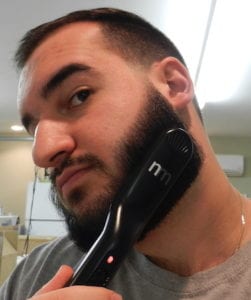
What problem does Newmen solve?
There’s an under-served demographic when it comes to men’s grooming needs. The men who come to our site are often buying products for the first time. We’re building a community around this group, offering products like scented beard oils, a beard straightener, and a protective heat spray for beards.
You participated in the UC LAUNCH accelerator with a different startup. What did you learn that you apply now?
LAUNCH taught us how to test products quickly. We did a lot of research on our Newmen oils, which are made by a small mom and pop shop in Detroit. We wanted to figure out what scents men liked and what’s good for the skin, so we looked at what a lot of women’s skin-care companies were selling.
We tested our products on hundreds of men super quickly, asking them how their faces felt after using our products for a week. We’re super close to our customers and we have early evangelists, people whom we text and email all the time. These people aren’t necessarily spending the most time on our website, but have been crucial in the development of Newmen. They might spend $40, but they’re giving us feedback all the time, telling their friends what they just bought and why.
Has anyone from Haas helped you with your startup?
Of course! Assoc. Prof. Panos Patatoukas has been super helpful. I met Panos before I came to Cal and he was extremely supportive throughout my undergraduate years. I’d be working on something and I’d ask him, ‘What do you think?’ He was a great sounding board and a supportive mentor. Additionally, Rhonda Shrader, executive director of the Berkeley Haas Entrepreneurship Program, has been the best, along with Aaron McDaniel, a professional faculty member at Haas, and Darren Cooke, a LAUNCH advisor.
I met Panos before I came to Cal and he was extremely supportive throughout my undergraduate years. I’d be working on something and I’d ask him, ‘What do you think?’ He was a great sounding board and a supportive mentor.

What are your goals for the next six to 12 months?
We’re selling only on our website right now. We’ve been making a profit so we haven’t thought about raising money yet. I don’t think much about the competition, I focus on what we’re selling. We’re thinking about new products and planning to sell a line of skincare, body wash, and shampoo in the future. As we continue to grow, we’re looking to sell into different channels, including regional and national retailers and barbershops around the country. We’re constantly focused on building relationships that can help us put our products in our customers’ hands wherever they might be in their grooming journey.
A lot of guys are telling us that they’re so proud of their beards now. They’re talking about their morning routines. It’s crazy to think we’re helping people with that!
Founder: Rory Stanton, EWMBA 20
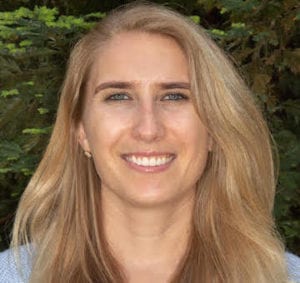
What does your startup do (in 20 words or less)?
Aila Health is a data-driven, remote-care platform for patients with chronic illness.
How did you come up with the idea?
My cousin has what you would call an invisible illness, meaning she looks healthy on the outside, but is actually managing multiple chronic conditions. After watching her bounce between specialists for years before getting a diagnosis and seeing the lack of communication between her different doctors, I thought there had to be a better way for doctors to deliver personalized care to patients with chronic illness.
What problem does Aila solve?
There are nearly 50 million Americans living with chronic autoimmune conditions today. That’s more than diabetes and cancer combined. Despite the fact that these conditions cost the health system billions each year, they are not well understood or managed. We aim to change that.
There are nearly 50 million Americans living with chronic autoimmune conditions today. That’s more than diabetes and cancer combined.
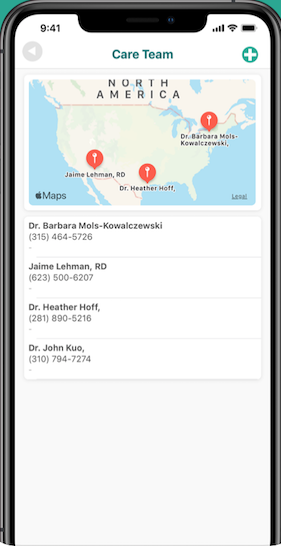
How doe Aila work and how do teams use it?
Aila Health is a chronic care management platform that offers personalized remote care at scale. It enables patients with chronic illness to sync all of their health information in one place and quantify disease progression over time. It similarly gives their healthcare providers a holistic view of a patient’s health so they can track symptoms in real-time and deliver the right care with the right provider at the right time.
What’s been the biggest challenge for you as a founder so far?
There are so many inefficiencies in the U.S. healthcare system that Aila’s solution can help with. One of the biggest challenges for us was determining which problem to solve first. During our customer interviews, we learned that the COVID-19 pandemic had drastically shifted priorities for healthcare organizations. There is a need for new technical infrastructure to deliver value-based care and personalized remote care at scale.
Has anyone from Haas helped you on your startup journey?
Haas gave me a great community of classmates and mentors who have helped us along our journey. Rhonda Shrader (executive director of the Berkeley Haas Entrepreneurship Program), in particular, has been an amazing mentor and advocate for me. From cheerleading during some difficult transition periods to supporting our team’s application for the National Science Foundation’s I-CORPS Program, I really appreciate having her in my corner. Dan Cloutier, EWMBA 21, was also a wonderful health industry mentor for our I-CORPS team.
What are your goals for the next six months?
We are kicking off our first couple of pilots now. We want to execute these really well and validate our solution with an improved provider experience and patient outcome. In the next six months, we aim to bring more health systems onto the platform and raise an initial round of financing.
Founder: Olayinka Omolere, MBA 21
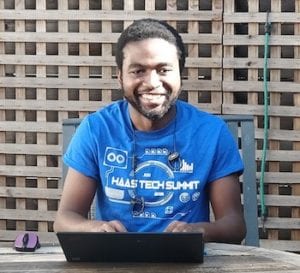
What does your startup do (in 20 words or less)?
Seren creates serendipity online by nudging people into instant and personalized water cooler calls—using AI to preserve relationships and collaboration.
How did you come up with the idea?
When COVID hit in March, I started looking for opportunities in the chaos. I looked for areas undergoing massive change and picked remote work because I had experienced it and understood its shortcomings.
As I spoke to my classmates about our challenges with remote schooling, I noticed a pattern. Without chance meetings in the Haas courtyard or around campus, my peers were finding it harder to stay connected. We were being told to “be intentional” but it felt like a ton of work, and our social interactions and circles were shrinking. I came to Haas for the culture, and I loved interacting with my friends and classmates, but I was beginning to feel isolated. Then I interned as a product manager at Cisco, where I saw first-hand how the problem of not having informal interactions could affect business. When informal connections are disrupted, employees find it harder to maintain a sense of belonging, and scientific research suggested this could impact culture and innovation.
What problem does Seren solve?
Seren solves the problem of staying in touch online by helping people to “bump into” other virtually, so that brief and informal conversations can happen.

We are making water cooler chats better in some ways than in-person, even though we can’t quite replace face-to-face conversations…yet. With this technology, we can customize water cooler chats for individual preferences around how people like to engage, who they want to talk to, how long they want to talk, and what they want to talk about. We want to help people have better informal conversations over audio/video with colleagues, on any platform, whether that’s Slack, Teams, Zoom or the web.
With this technology, we can customize water cooler chats for individual preferences around how people like to engage, who they want to talk to, how long they want to talk, and what they want to talk about.
What’s been the biggest challenge so far?
My biggest challenge has been finding software engineering and machine learning talent to join our team. We have used BearX, Handshake, and LinkedIn and are really keen to find more people who are excited about impactful startups.
So far, I have been working with an amazing team of Berkeley undergrads and alumni—Leonor Alcaraz-Guzman, Helen Xu, and Patrick Zhu. In my Product Management class, I am on a diverse team with grad students from the School of Information, Fung Institute, and Haas, and we are learning so much.
Has anyone from Haas helped you with your startup?
I’ve had lots of help from faculty and staff. Early on, I took the NSF Bay Area I-CORPS course, which helped me learn how to do customer discovery. Rhonda Shrader, executive director of the Berkeley Haas Entrepreneurship Program, has been consistent in pointing us towards potential partners, competitions, mentors, and opportunities.
Vince Law, a professional faculty member, has reviewed more than one version of our early prototypes, and given critical feedback. In Jeff Eyet’s class on design thinking, he shared great advice on trying to understand users’ emotions and motivations for using our solution. Greg La Blanc, another professional faculty member, helped me think strategically about whether to even pursue this idea or space of remote work.
What are your goals for the next six months?
Our top goal is to get a strong sense of whether our product is exceptional at solving the challenge of creating serendipity for our users or not. We will need to launch and get lots of user feedback to answer that question. When you think about it, these are unique times with millions of people stuck at home, so if they want this, we should be able to quickly determine whether we can satisfy that need, and build a business out of it.
Another key goal is to clearly show a path to defeating our competition. I joke with my teammates that every week someone else has launched a new product to solve the same problem. Currently, we segment our competition in these categories: bots offering instant water cooler calls, standalone virtual office applications, and platforms that match people for conversations based on interests. We understand the competition and have a distinct path toward differentiating ourselves.
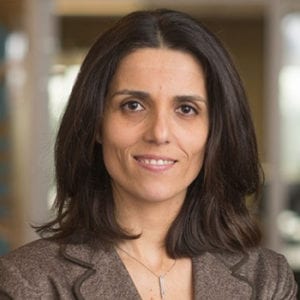
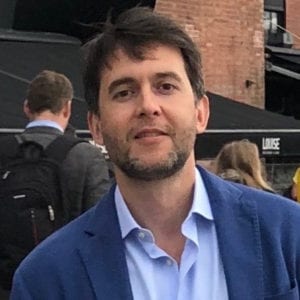

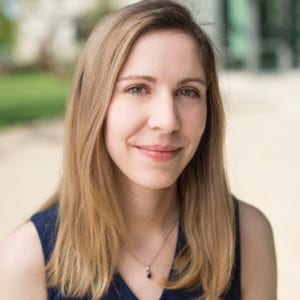
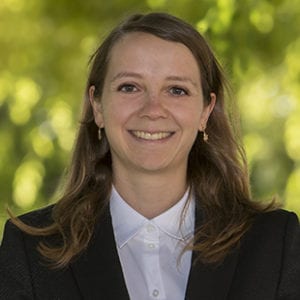

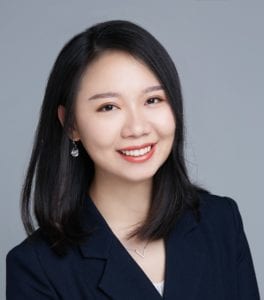
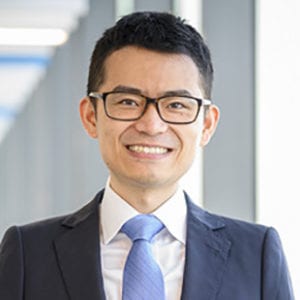 Luyi Yang
Luyi Yang